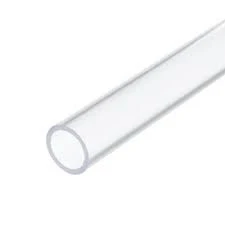Dec . 03, 2024 17:18 Back to list
HDPE Drainage Pipes for Efficient Water Management and Environmental Sustainability Solutions
The Benefits and Applications of HDPE Drainage Pipes
High-Density Polyethylene (HDPE) drainage pipes are increasingly becoming popular in various sectors due to their durability, flexibility, and resistance to corrosive elements. Made from high-density polyethylene, these pipes offer a robust solution for drainage and wastewater management. In this article, we will explore the numerous advantages of HDPE drainage pipes, their applications, and why they are a preferred choice in modern construction and infrastructure projects.
Advantages of HDPE Drainage Pipes
1. Durability and Longevity One of the primary benefits of HDPE drainage pipes is their exceptional durability. They are designed to withstand harsh environmental conditions, including extreme temperatures and pressures. Unlike traditional materials such as concrete or clay, HDPE does not corrode, rust, or wear out over time. This ensures that HDPE pipes have a long service life, often surpassing 50 years with minimal maintenance needed.
2. Lightweight and Easy to Install HDPE pipes are significantly lighter than their traditional counterparts, making them easier to handle and transport. This lightweight nature allows for quicker installation, which can reduce labor costs and project timeframes. The flexibility of HDPE pipes also means they can be easily bent around obstacles, allowing for efficient routing in complex sites.
3. Resistance to Chemicals and Abrasion HDPE is inherently resistant to a wide range of chemicals and abrasive materials, making it ideal for industrial applications where chemical exposure is a concern. This resistance minimizes the risk of leaks, ensuring a safer environment where hazardous materials are involved. Additionally, HDPE's smooth interior minimizes friction, reducing the likelihood of clogging.
4. Environmental Benefits In an era focused on sustainability, HDPE pipes have several environmental advantages. They are made from recyclable materials, and their long lifespan and resistance to degradation mean less waste over time. Furthermore, the manufacturing process of HDPE pipes generally requires less energy compared to traditional materials, contributing to a lower carbon footprint.
5. Cost-Effectiveness Although the initial cost of HDPE drain pipes may be slightly higher than conventional materials, their long-term benefits far outweigh this upfront investment. Reduced maintenance costs, longer service life, and lower installation costs all contribute to making HDPE a more economical choice over time.
Applications of HDPE Drainage Pipes
hdpe drainge pipe

HDPE drainage pipes are versatile and suitable for a wide range of applications
1. Stormwater Management In urban areas, managing stormwater runoff is critical to prevent flooding. HDPE pipes are commonly used in stormwater drainage systems to efficiently channel excess rainwater away from streets and low-lying areas.
2. Sewer Systems HDPE pipes are increasingly being adopted for municipal sewer systems. Their resistance to sulfuric acid and other corrosive materials found in wastewater makes them an ideal choice for underground sewer infrastructure.
3. Agricultural Drainage In agricultural applications, HDPE drainage pipes are used to remove excess water from fields, helping to improve soil aeration and prevent crop damage caused by waterlogging. They are also used in irrigation systems.
4. Residential Drainage Homebuilders are increasingly opting for HDPE drainage pipes for residential projects due to their ease of installation and reliability. These pipes are essential in managing wastewater and storm drainage in suburban developments.
5. Industrial Applications Industries that deal with hazardous materials often require resilient drainage solutions. HDPE pipes are ideal for managing industrial wastewater and chemicals, ensuring the safety of the surrounding environment.
Conclusion
HDPE drainage pipes represent a significant advancement in the realm of drainage solutions, combining durability, flexibility, and environmental sustainability. Their wide array of applications, from urban infrastructure to agricultural uses, showcases their versatility and effectiveness. As industries continue to prioritize sustainable practices, the demand for HDPE pipes is expected to rise. Ultimately, investing in HDPE drainage pipes not only offers immediate practical benefits but also contributes to a more sustainable future. Whether it’s for managing stormwater, ensuring effective wastewater disposal, or supporting agricultural productivity, HDPE drainage pipes stand out as a leading choice for modern infrastructure needs.
-
High-Quality PPR Pipes and Fittings Durable ERA PPR & PVC PPR Solutions
NewsJul.08,2025
-
Black HDPE Cutting Board - Durable, Non-Porous & Food Safe HDPE Plastic Cutting Board
NewsJul.08,2025
-
High-Quality CPVC Panel Durable HDPE & PVC Panels Supplier
NewsJul.08,2025
-
Double PE Welding Rod Supplier - High Strength, Durable & Versatile Welding Solutions
NewsJul.07,2025
-
High-Quality PVC-O Pipe Supplier Durable 75mm PVC Pipe & Connections Leading PVC Pipe Company
NewsJul.07,2025
-
HDPE Drainage Pipe Supplier – Durable & Corrosion-Resistant Solutions
NewsJul.06,2025

